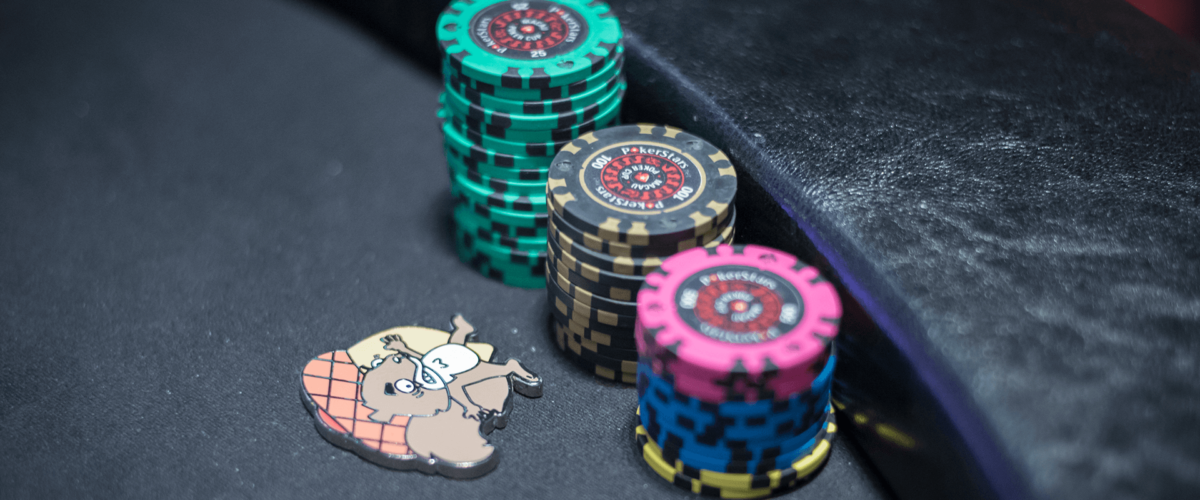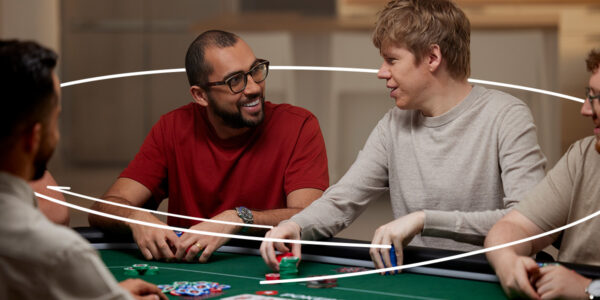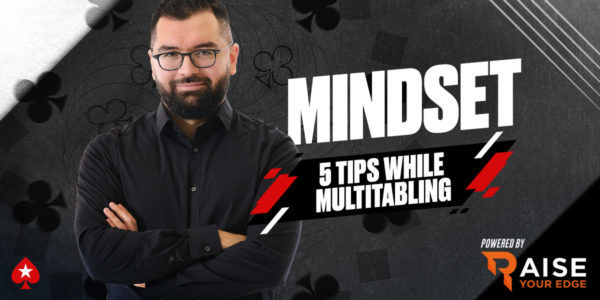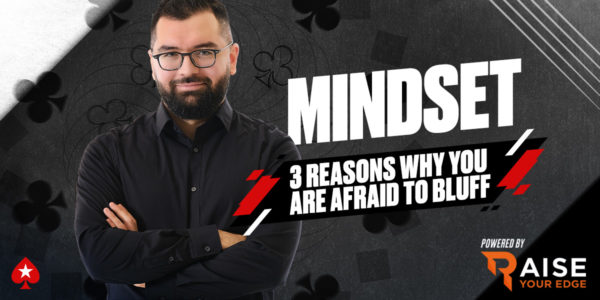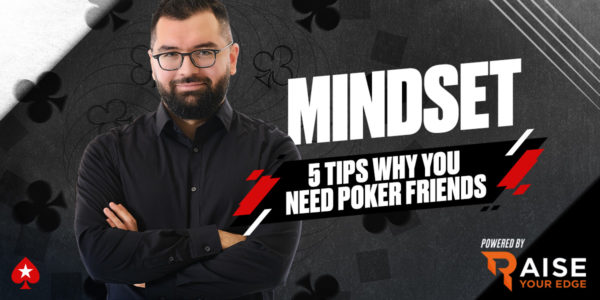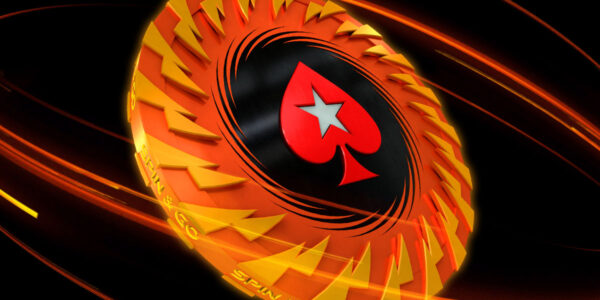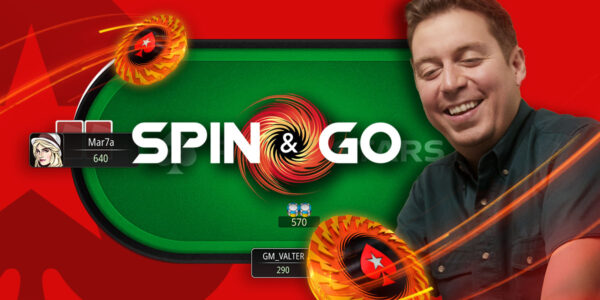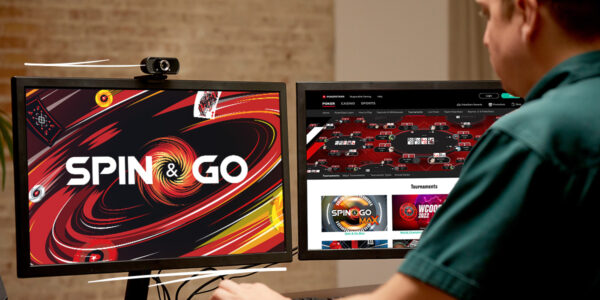Perceiving Yourself and Others at the Poker Table
Our perception of ourselves at the tables can have a huge effect on our confidence and ability to grasp reality. Our perception of our opponents governs the respect we assign them and how emotional we are likely to feel when in pots with them. This article is all about the mindset of perception at the poker tables. Let’s unearth the flawed perceptions that frequently lead to a suboptimal mindset at the poker table, and subsequently, some very avoidable errors.
Self-Perception – Deflated Ego
Poker players are notorious for being very harsh on themselves at the table. Do you ever go on a tirade of self-degradation after making a mistake? Do you find yourself saying things like: ‘What an idiotic call’ or ‘I screwed up again, I’ll never be good at this game.’ Such inward criticism is typical of the aspiring poker player for two reasons. Firstly, he fails to grasp the inevitability of making mistakes or even blunders on a semi-regular basis. Secondly, he is extremely motivated to win. This competitiveness unfortunately gets channelled towards wanting to win every pot instead of winning over the course of three months. It is human nature to judge success over short timeframes.


If you often berate yourself at the tables, it is time to show some compassion. The cause of your blunders is a psychological process which is often outside of your control but can be identified and fixed. Try being easier on yourself. Punitive scolding never helped anyone to grow or prosper. Try to remember that for every error you make there are also hands that you play much better today than you would have yesterday. Look at where you are relative to where you have come from, not relative to some unrealistic level of accuracy that only a poker super-computer could achieve.
Self-Perception – Inflated Ego
The opposite of players who tear themselves to shreds for every mistake are those who blame variance and their opponents’ bad play for every losing hand. The inflated ego player is every bit as fragile as the self-critic; he just hides it behind bluster and bravado. This guy is so threatened by the idea that others are better than him, that he creates a world where he is king. The problem with seeing yourself as a god of the game is that gods tend to feel entitled to success. When a hand goes wrong, not only does rage ensue, but this rage blames external sources and tosses away culpability – the very thing that is required to learn from mistakes.
The player with an inflated ego is hopeless until he changes his ways. While the self-critic can learn slowly in an emotional and unenjoyable way; the ego-mad player does not learn at all. What’s worse is that this player grossly over-estimates his chances of outplaying an opponent and justifies entering unfavourable situations and games due to his unrealistic sense of his own abilities. Many of these players, after months of stagnation, start to believe delusions like poker being an unbeatable game, or the deck being fixed against them.
The only way for the ego king to progress is to fall from his fake throne and feel the bitter sting of reality for the first time. There is a certain grace about admitting that you are not as good as you thought. Admitting this can feel deeply satisfying. After all, if you already have the game solved, then it can’t be much fun trying to get better. Gods can’t learn; they are omniscient.
Outward Perception – Not Giving Enough Respect
It is tempting to see a weaker player as someone who is never entitled to win a pot. Some of my students report a feeling of arrogance when playing against strategically unsound opponents. They feel as though the other player is too undeserving to possibly win a pot against them and consequently call his strong 3-Bets with poor hands. No amount of skill will allow you to overcome a massive equity disadvantage in a 3-Bet pot.
Another manifestation of this mindset leak is to develop disdain towards the other regulars. ‘These regs are just idiots, look how bad they are’ is a very satisfying way to give yourself an ego boost, but this boost is as hollow as it is damaging to your win-rate. There are some regulars who make mistakes you would never make, but there are others who would never make some of the blunders that you do. Poker players are not just ranked from 0-100. Some are better at smaller pots and value- betting thinly, while others are better at finding good spots to bluff and running people over in big pots. Try to see the regulars in your games as having strengths and weaknesses. It is not your job to assign them an overall score or hate on them for playing badly in one spot. Instead figure out where the chinks their armour lie and tailor your game to exploit those. Lastly, try to respect your opponents as humans who are trying to do their best to win at a difficult game. When an overly aggressive regular wins a big pot from you by doing something silly, try to remember how much money that play costs him in the long run. He suffers plenty for it – without you calling him a moron.


Outward Perception – Giving too Much Respect
Another perception pitfall is to see the stronger players as intimidating monsters. Someone having a skill advantage against you is not reason enough to make very tight folds and avoid conflict. If you run away from close decisions against tough opposition, you will simply encourage them to run you over with aggression. Against a balanced strategy, their well-placed aggression is solid, but against a timid strategy, it becomes crushing. Acknowledge that someone is a strong player but see this as motivation to improve your own game.
Against tough opponents, it is important to think about what you should do in theory, which is why I suggest that from an early point in their careers, my students start learning a bit about game theory and balance. It will come I handy when you find yourself outgunned and in need of a fortress in which to hide. Once you have figured out the leaks in this strong opponent’s games, it is time to come out from behind your
shield of theory and make some exploitative plays, but do not attempt this until you know in which direction you should swing.
Conclusion
Poker is a lot more fun and satisfying when you have learned to be honest with yourself about your own abilities and treat yourself with a sense of kind responsibility at the tables. Poker is a lot more profitable when you acknowledge your opponents’ skills and shortcomings as technical data instead of reacting to it through fight or flight.


